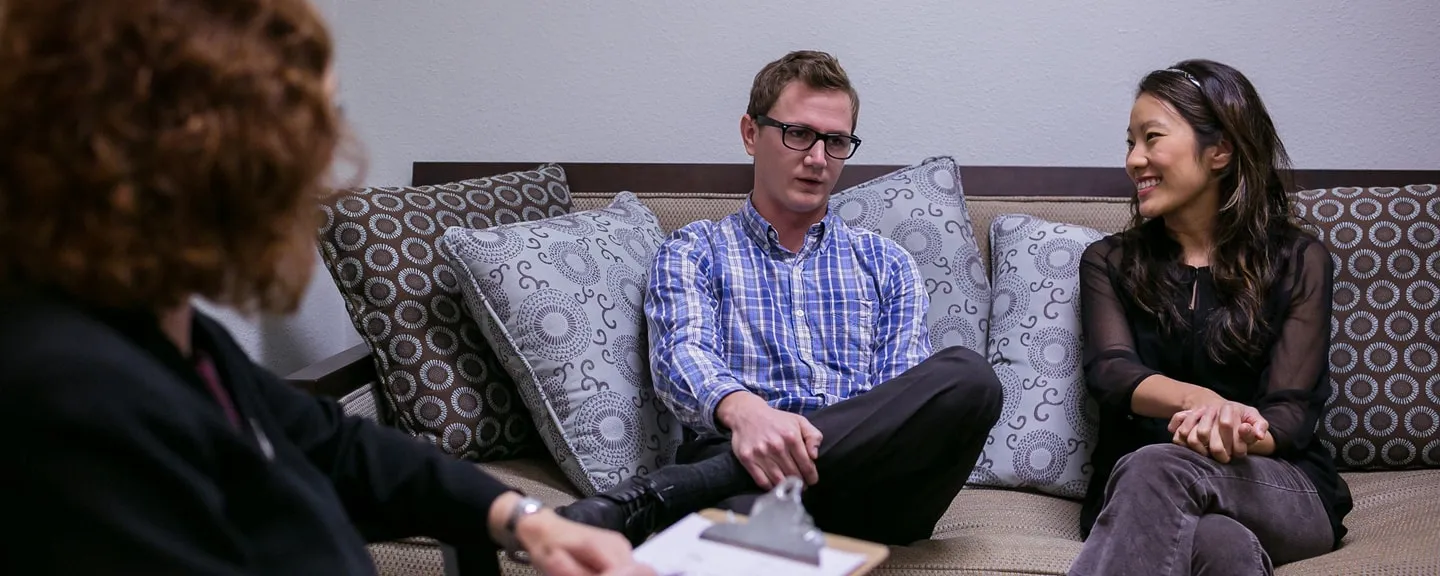- Home
- >
- APU Articles
- >
- News Article
College Counseling Services: A Critical Component of Student Success
September 19, 2019 | Written By Tobin Perry

Finding Support on Campus
Thankfully, students aren’t just recognizing the symptoms—they’re getting help for their struggles. Between 2009 and 2015, the number of students visiting college counseling centers climbed by 30 percent on average, according to the Center for Collegiate Mental Health. Of all the issues students were dealing with, the American College Health Association reported anxiety, depression, and relationship problems were among the most common.
Experts in the counseling field suggested that the uptick in students visiting counseling centers should be seen in a positive light. While it’s possible (and maybe even probable) that student mental health challenges have grown in the last few decades, the fact that more students are seeking out the help they need is a great thing. This means students are more aware of these needs and there is less of a stigma around people getting the help they deserve.
Counseling Services at APU
In recent years, schools across the country have expanded their college counseling services that are designed to help students succeed in their educational and personal journeys. Some of these services include individual counseling, couples counseling, premarital counseling, group counseling, crisis intervention, and informational workshops.
Azusa Pacific University has long been focused on students’ mental health. Lori Lacy, PsyD, director of the University Counseling Center at APU, explained that the center works to create a safe, welcoming environment with professional and individualized treatment for every student who needs support.
“Students who seek our services will learn important skills to promote thriving, including how to care well for themselves, ways to foster community support, and practical tools to directly address their concerns,” Lacy said. “Staff are well trained in helping students pursue emotional, social, relational and academic wellness.”
Workshops and Other Resources
In addition to personalized counseling sessions, APU’s counseling center hosts workshops designed to help students through mental health challenges. These offerings include:
- The Living Well Workshop: During these sessions, students have the chance to explore ways to reduce stress and learn strategies that can help improve their emotional well-being.
- Anxiety Toolbox Workshop: This program helps students learn how to reduce anxiety. Students walk out of these sessions with their own personalized, written plan to better address their own anxiety.
- Self-Growth Group: This offering is geared toward students who are interested in better understanding themselves (and others). During the sessions, participants are encouraged to explore their personal relational patterns and discover new ways to authentically connect with others.
The counseling center at APU recognizes that spiritual, relational, and emotional needs are often interconnected. Accordingly, the department strives to meet the needs of all three areas while working in tandem with other campus resources. These efforts include helping students connect to Spiritual Life, the Academic Success Center, and the Office of Women’s Development for additional support.
Lacy encourages all students to make an appointment to visit the University Counseling Center, located at the APU’s East Campus in Magnolia Court, next to the Health Center. “We offer same-day urgent care sessions, as well as one-time solution sessions, and intake appointments,” she noted.
Curious to learn more about Azusa Pacific University’s mental health services? Visit the counseling center’s website to explore its many resources and make an appointment today.
If you are in crisis and need to speak with a counselor right away, please visit the counseling center as soon as possible, or call (626) 815-2109 after hours.